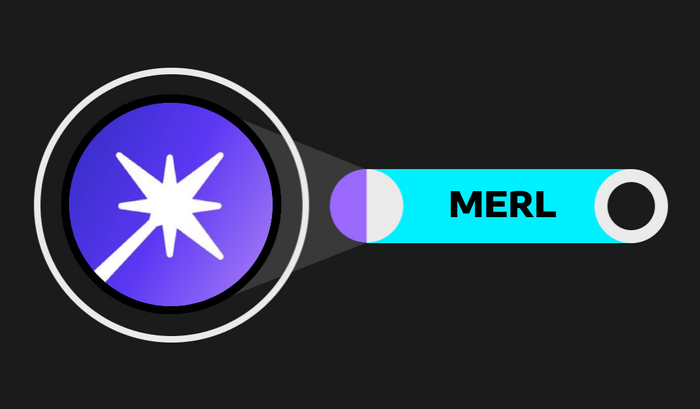-
 Bitcoin
Bitcoin $98,878.3656
2.63% -
 Ethereum
Ethereum $1,898.6958
3.95% -
 Tether USDt
Tether USDt $1.0001
0.02% -
 XRP
XRP $2.1778
1.87% -
 BNB
BNB $609.2727
0.84% -
 Solana
Solana $150.3236
3.16% -
 USDC
USDC $1.0000
0.00% -
 Dogecoin
Dogecoin $0.1800
4.83% -
 Cardano
Cardano $0.7007
3.72% -
 TRON
TRON $0.2502
2.43% -
 Sui
Sui $3.5903
6.39% -
 Chainlink
Chainlink $14.5189
4.64% -
 Avalanche
Avalanche $20.4963
3.60% -
 Stellar
Stellar $0.2689
3.27% -
 Bitcoin Cash
Bitcoin Cash $416.4165
12.11% -
 UNUS SED LEO
UNUS SED LEO $8.7851
0.59% -
 Shiba Inu
Shiba Inu $0.0...01322
3.85% -
 Hedera
Hedera $0.1834
4.30% -
 Toncoin
Toncoin $3.0918
3.21% -
 Hyperliquid
Hyperliquid $21.2610
2.68% -
 Litecoin
Litecoin $91.9046
0.69% -
 Polkadot
Polkadot $4.2322
7.29% -
 Dai
Dai $1.0001
0.01% -
 Monero
Monero $283.8591
-1.35% -
 Bitget Token
Bitget Token $4.2757
-0.82% -
 Ethena USDe
Ethena USDe $1.0005
0.01% -
 Pi
Pi $0.6224
7.29% -
 Pepe
Pepe $0.0...08735
9.45% -
 Bittensor
Bittensor $393.1590
6.24% -
 Uniswap
Uniswap $5.1420
4.95%
What is MERL coin? What does MERL coin mean?
MERL coin, the native cryptocurrency of the Mars Ecosystem, grants holders exclusive access to token sales, governance rights, staking rewards, and serves as a medium of exchange within the ecosystem.
Oct 13, 2024 at 11:06 pm

What is MERL Coin and Its Significance
1. Definition of MERL Coin
MERL, or the Mars Ecosystem Rocket Launchpad Token (MERL), is a native cryptocurrency within the Mars Ecosystem, a decentralized autonomous organization (DAO) focused on facilitating the development of projects within the Polygon blockchain network.
2. Purpose of MERL Coin
MERL coin plays a crucial role within the Mars Ecosystem, serving several key purposes:
- Access to Launchpad: MERL holders gain exclusive access to seed and private token sales offered through the Mars Ecosystem Launchpad.
- Governance: MERL coins confer voting rights, allowing holders to participate in the decision-making process of the Mars Ecosystem DAO.
- Staking Rewards: MERL holders can stake their tokens to earn additional rewards and contribute to the stability of the Mars Ecosystem.
- Medium of Exchange: MERL can be used as a medium of exchange within the Mars Ecosystem for various services and transactions.
3. Importance of MERL Coin
The MERL coin serves as the backbone of the Mars Ecosystem, providing the following benefits:
- Supports Project Incubation: The Mars Ecosystem supports promising projects that build innovative applications on Polygon, empowering them with funding, community support, and mentorship.
- Empowers Holders: MERL holders enjoy access to exclusive opportunities, decision-making power, and financial rewards, fostering a sense of community and ownership.
- Enhances Security: Staking MERL contributes to the security of the Mars Ecosystem by providing incentives for token holders to maintain network stability and prevent malicious actors.
Conclusion
MERL coin is an integral part of the Mars Ecosystem, serving as an access key, governance tool, staking mechanism, and medium of exchange. It empowers token holders, supports project development, and ensures the stability of the Mars Ecosystem within the Polygon blockchain network. Understanding the role of MERL coin is essential for anyone seeking to engage with or contribute to the Mars Ecosystem and its mission.
Disclaimer:info@kdj.com
The information provided is not trading advice. kdj.com does not assume any responsibility for any investments made based on the information provided in this article. Cryptocurrencies are highly volatile and it is highly recommended that you invest with caution after thorough research!
If you believe that the content used on this website infringes your copyright, please contact us immediately (info@kdj.com) and we will delete it promptly.
- Bitcoin (BTC) Price Prediction: BTC to Surge Towards New All-Time Highs After Breaking Out of Consolidation
- 2025-05-08 13:05:14
- Pectra upgrade successfully deployed to the Ethereum blockchain
- 2025-05-08 13:05:14
- 2025 Is Shaping Up to Be a Game-Changing Year for Crypto
- 2025-05-08 13:00:13
- Bitcoin reclaims $98,000 for the first time in almost three months after the US Federal Reserve said it would keep interest rates the same for another month.
- 2025-05-08 13:00:13
- USD1 Stablecoin Proposed by World Liberty Financial (WLFI), a Cryptocurrency Project Backed by US President Donald Trump, Has Received Overwhelming Approval
- 2025-05-08 12:55:14
- Bitcoin Core Sparks Intense Debate by Ditching Its 80-Byte OP_RETURN Limit
- 2025-05-08 12:55:14
Related knowledge

Is Ethereum smart contract call fee high? How to optimize costs?
May 08,2025 at 09:35am
Is Ethereum Smart Contract Call Fee High? How to Optimize Costs? The world of Ethereum smart contracts has revolutionized the way we think about decentralized applications and blockchain technology. However, one of the most frequently discussed topics within this realm is the cost associated with executing smart contract calls. In this article, we will ...

Is Ethereum Layer2 fee low? How to use it cheaper?
May 08,2025 at 03:56am
The question of whether Ethereum Layer 2 solutions offer lower fees and how to use them more economically is a topic of great interest within the cryptocurrency community. Ethereum's Layer 2 solutions have been developed to address the high transaction fees and scalability issues associated with the main Ethereum network. In this article, we will delve ...

How to calculate Ethereum network fee? How to reduce transaction costs?
May 08,2025 at 02:15am
Understanding and managing Ethereum network fees is crucial for anyone involved in transactions on the Ethereum blockchain. The network fee, also known as gas fee, is the amount of Ether (ETH) required to successfully conduct a transaction or execute a smart contract on the Ethereum network. Calculating these fees and finding ways to reduce them can sig...

What is Ethereum Gas Fee? How to optimize Gas Fee to save costs?
May 08,2025 at 03:43am
Ethereum gas fees are a crucial aspect of interacting with the Ethereum blockchain. Understanding and optimizing these fees can significantly impact the cost-effectiveness of transactions and smart contract interactions. In this article, we will delve into what Ethereum gas fees are, how they are calculated, and provide detailed strategies for optimizin...

How to perform MOVE cross-chain transfer? What to do if the gas fee is too high?
May 07,2025 at 08:03pm
Introduction to MOVE Cross-Chain TransferCross-chain transfers have become an essential part of the cryptocurrency ecosystem, allowing users to move assets between different blockchain networks. One of the popular protocols for achieving this is the MOVE cross-chain transfer. This article will guide you through the process of performing a MOVE cross-cha...

How is the DYDX liquidation price calculated? How is the forced liquidation mechanism?
May 08,2025 at 06:49am
The DYDX liquidation price and the forced liquidation mechanism are crucial aspects of trading on the dYdX platform, a decentralized exchange that allows users to trade perpetual contracts. Understanding these concepts is essential for managing risk and maximizing potential returns. In this article, we will delve into the details of how the DYDX liquida...

Is Ethereum smart contract call fee high? How to optimize costs?
May 08,2025 at 09:35am
Is Ethereum Smart Contract Call Fee High? How to Optimize Costs? The world of Ethereum smart contracts has revolutionized the way we think about decentralized applications and blockchain technology. However, one of the most frequently discussed topics within this realm is the cost associated with executing smart contract calls. In this article, we will ...

Is Ethereum Layer2 fee low? How to use it cheaper?
May 08,2025 at 03:56am
The question of whether Ethereum Layer 2 solutions offer lower fees and how to use them more economically is a topic of great interest within the cryptocurrency community. Ethereum's Layer 2 solutions have been developed to address the high transaction fees and scalability issues associated with the main Ethereum network. In this article, we will delve ...

How to calculate Ethereum network fee? How to reduce transaction costs?
May 08,2025 at 02:15am
Understanding and managing Ethereum network fees is crucial for anyone involved in transactions on the Ethereum blockchain. The network fee, also known as gas fee, is the amount of Ether (ETH) required to successfully conduct a transaction or execute a smart contract on the Ethereum network. Calculating these fees and finding ways to reduce them can sig...

What is Ethereum Gas Fee? How to optimize Gas Fee to save costs?
May 08,2025 at 03:43am
Ethereum gas fees are a crucial aspect of interacting with the Ethereum blockchain. Understanding and optimizing these fees can significantly impact the cost-effectiveness of transactions and smart contract interactions. In this article, we will delve into what Ethereum gas fees are, how they are calculated, and provide detailed strategies for optimizin...

How to perform MOVE cross-chain transfer? What to do if the gas fee is too high?
May 07,2025 at 08:03pm
Introduction to MOVE Cross-Chain TransferCross-chain transfers have become an essential part of the cryptocurrency ecosystem, allowing users to move assets between different blockchain networks. One of the popular protocols for achieving this is the MOVE cross-chain transfer. This article will guide you through the process of performing a MOVE cross-cha...

How is the DYDX liquidation price calculated? How is the forced liquidation mechanism?
May 08,2025 at 06:49am
The DYDX liquidation price and the forced liquidation mechanism are crucial aspects of trading on the dYdX platform, a decentralized exchange that allows users to trade perpetual contracts. Understanding these concepts is essential for managing risk and maximizing potential returns. In this article, we will delve into the details of how the DYDX liquida...
See all articles
























![[2025.05.08] The two routes of Bitcoin continue to be observed, and gold is still bullish. [2025.05.08] The two routes of Bitcoin continue to be observed, and gold is still bullish.](/uploads/2025/05/08/cryptocurrencies-news/videos/routes-bitcoin-continue-observed-gold-bullish/image_500_375.webp)




























































